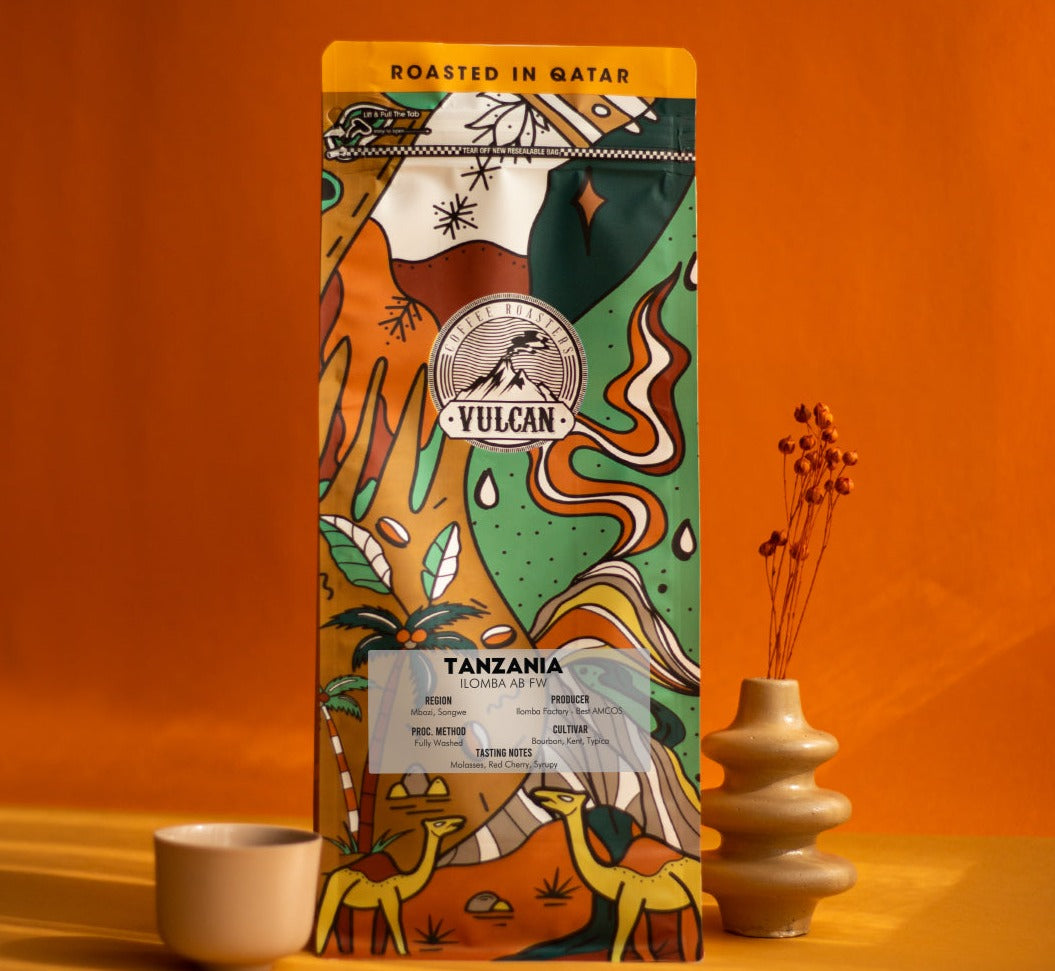انتقل إلى معلومات المنتج
-
معرض الوسائط  معرض الوسائط
معرض الوسائط
-
معرض الوسائط  معرض الوسائط
معرض الوسائط
-
معرض الوسائط  معرض الوسائط
معرض الوسائط
-
معرض الوسائط  معرض الوسائط
معرض الوسائط
-
معرض الوسائط  معرض الوسائط
معرض الوسائط
1
/
ل
6
Vulcan Coffee Roastery
قهوة إي لومبا المغسولة – تنزانيا
- سعر العرض
- QAR 69.00
- السعر العادي
-
- السعر العادي
- QAR 69.00
- سعر الوحدة
- / لكل
-0%
يتم احتساب تكلفة الشحن ند إتمام الطلب.
لم نتمكن من تحميل توفر الاستلام
تُظهر هذه القهوة المغسولة الإمكانات المذهلة التي يتمتع بها مزارعو القهوة في تنزانيا لإنتاج قهوة مختصة عالية الجودة.
-
المزرعة: إي لومبا مبوزي
- السلالة: بوربون، كنت، تيبيكا
- المعالجة: مغسولة
- الارتفاع: ١٧٠٠ متر فوق سطح البحر
- المنتج: مجموعة بست الزراعية (Best AMCOS)
- المنطقة: سونغوي، تنزانيا
- الإيحاءات: دبس السكر، كرز أحمر، قوام شرابي
يُيُركّز مصنع إي لومبا على رفع جودة القهوة من خلال معالجة الكرز في محطة مركزية للغسل الرطب. كما يستمر الفريق في تطوير تقنيات المعالجة عبر بناء خزانات تخمير جديدة، ومكاتب، ومستودعات لتحسين الإنتاج والكفاءة.










